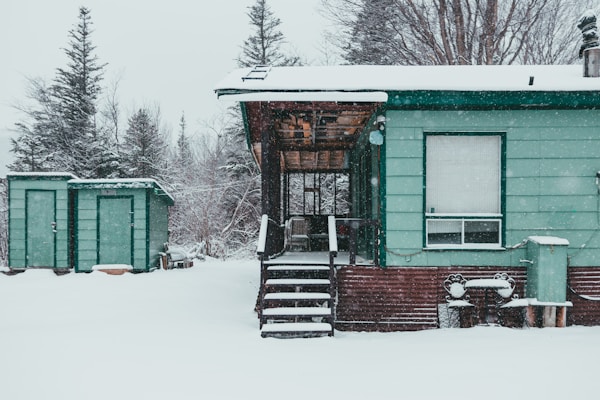If your evaporator coils frequently freeze over, it's not just a nuisance. It can cause your entire HVAC system to break down. Fortunately, you can do a few things to prevent this from happening. The number one thing you can do to prevent your evaporator coils from freezing is to ensure they're properly insulated. Keep reading to learn more about how to prevent a frozen evaporator coil.
What causes a frozen evaporator coil?

The evaporator coil is a key component of the air conditioning system. The evaporator coil is responsible for cooling the air circulating throughout the home. If the evaporator coil becomes frozen, it could cause the HVAC system to stop working entirely or break. Several things can cause the evaporator coil to freeze, some of which are preventable.
One common cause of a frozen evaporator coil is a lack of airflow. This can be due to a dirty filter or an obstructed airflow pathway. A dirty filter will reduce the amount of airflow through the system and can cause the coils to freeze. An obstruction in the airflow pathway can be caused by something as simple as leaves or debris blocking the vents or by ice dams on the roof, which can block ventilation altogether.
Another common cause of a frozen evaporator coil is high humidity levels in the home. When humidity levels are high, water vapor will condense on the coils and freeze. This can happen even when there is adequate airflow through the system.
If your air conditioning unit is not correctly sized for your home, it may not be able to keep up with demand during extreme heat or cold, which can also lead to a frozen evaporator coil.
You can do several things to prevent your evaporator coil from freezing. The most important thing is to ensure adequate airflow through the system by keeping both filters clean and clear of obstructions. You should also ensure that your unit is sized correctly for your home according to climate conditions and the number of occupants living there. Finally, you can use a dehumidifier with your air conditioner to control humidity levels in your home.
How can you ensure good airflow around evaporator coils?
Evaporator coils must be kept clean and free of obstructions to function properly. Blocked or dirty coils can cause the refrigerant to freeze, resulting in a frozen evaporator coil. This can lead to a decreased cooling efficiency and even an outright unit breakdown. There are several things you can do to ensure good airflow around the coils and prevent them from freezing:
- Ensure enough space between the top of the coils and any obstruction, such as cabinets or furniture.
- Do not block air vents or grilles that allow air to circulate the coils.
- Keep plants, curtains, rugs, or other objects away from the coils.
- Clean or replace filters regularly. Dirty filters restrict airflow and can cause the coils to freeze.
How can you prevent frozen coils?

Another way to help keep your evaporator coils from freezing is by ensuring your HVAC system is correctly balanced. If your system is not balanced, it will work much harder than it needs to, which can lead to coil freeze-ups. Another thing you can do to prevent your evaporator coils from freezing is to make sure they're clean. If they're dirty, they won't be able to absorb heat as well, and this can lead to freezing.
If you've tried all of these things and your evaporator coils are still freezing over, it might be time to call a professional. They can help you identify and fix the problem to get your HVAC system back up and running. Frozen evaporator coils can lead to compressor failure and extensive damage to the unit. Prevention is the key to avoiding this problem. Proper maintenance and using a thermostat to regulate the space's temperature will help keep the coils from freezing.






